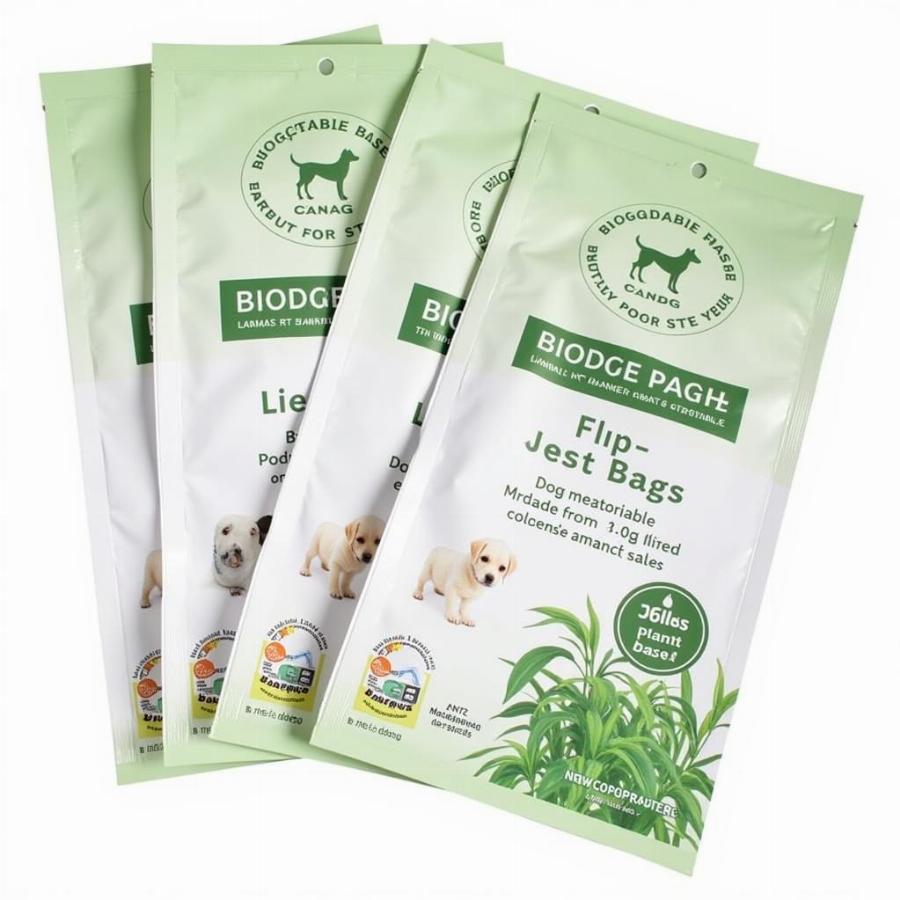As a responsible dog owner, you know that cleaning up after your furry friend is non-negotiable. But have you ever stopped to think about what happens to that dog poop after you bag it and toss it in the trash? Does dog poop decompose? The answer, unfortunately, isn’t as straightforward as you might think.
Dog waste doesn’t decompose at the same rate as other organic materials. In fact, depending on the conditions, it can take months or even years for dog poop to fully break down. This is due to a number of factors, including the composition of the waste itself, the environment where it’s disposed of, and the presence of bacteria responsible for decomposition.
Why Dog Poop Takes So Long to Decompose
Unlike cow manure, which is primarily made up of digested grass, dog poop is higher in protein. This is due to their primarily meat-based diet. Protein-rich waste takes longer to break down, especially in landfills where oxygen, a vital component of decomposition, is limited.
Here’s a closer look at the factors that affect the decomposition of dog poop:
- Diet: A diet high in protein contributes to slower decomposition rates.
- Oxygen: Landfills are not designed for optimal airflow, limiting the oxygen bacteria need to break down waste effectively.
- Moisture: Excessive moisture can create an anaerobic environment, slowing down the decomposition process. On the other hand, extremely dry conditions can also hinder decomposition.
- Temperature: Warm temperatures encourage bacterial activity and speed up decomposition. In colder climates, decomposition slows down significantly.
The Environmental Impact of Dog Poop
The slow decomposition rate of dog poop isn’t just a matter of unpleasant aesthetics; it poses significant environmental concerns. Here’s why:
- Water Contamination: When left on the ground, dog poop can be washed into waterways by rain. This contaminates water sources with harmful bacteria and parasites, posing a risk to both human and animal health.
- Soil Imbalance: Dog waste is high in nitrogen and phosphorus. While these nutrients can be beneficial to soil in small amounts, excessive amounts can disrupt the natural balance, leading to an overgrowth of algae and weeds.
- Methane Production: Landfills are a major contributor to methane emissions, a potent greenhouse gas. Dog poop trapped in landfills contributes to this problem as it slowly decomposes and releases methane.
Responsible Dog Waste Disposal: What You Can Do
The good news is that there are steps you can take to minimize the environmental impact of your dog’s waste:
- Always Pick Up After Your Dog: This is the golden rule of responsible dog ownership. Use biodegradable dog waste bags whenever possible.
- Compost Safely: Composting dog poop can be a great option, but it requires a dedicated system that reaches high enough temperatures to kill harmful pathogens. Avoid using dog waste compost on edible plants.
- Flush It Away (Sometimes): Some municipalities allow dog poop to be flushed down the toilet. Check with your local regulations to see if this is an option in your area.
- Invest in a Dog Poop Septic Tank: These in-ground systems use enzymes and bacteria to break down dog waste effectively.
 Biodegradable Dog Waste Bags
Biodegradable Dog Waste Bags
FAQs About Dog Poop Decomposition
Q: How long does it take for dog poop to decompose in a landfill?
A: It can take several years for dog poop to fully decompose in a landfill due to the lack of oxygen and other factors.
Q: Is it okay to bury dog poop in my backyard?
A: While it might seem like a natural solution, burying dog poop isn’t ideal. It can still contaminate groundwater and attract pests.
Q: I heard about flushable dog poop bags. Are these a good option?
A: Not all flushable bags are created equal. Some might be flushable but not biodegradable, meaning they won’t break down properly in the sewage system. Look for bags specifically labeled as both flushable and biodegradable.
Q: Can I use my regular compost bin for dog poop?
A: Regular compost bins don’t reach temperatures high enough to kill harmful bacteria and parasites found in dog poop.
Keeping Our Environment Clean, One Poop at a Time
Understanding the decomposition process of dog poop and its potential impact on the environment underscores the importance of responsible waste disposal. By adopting eco-friendly practices, we can ensure a cleaner, healthier planet for ourselves, our furry companions, and generations to come.
Need More Advice on Dog Ownership?
Beaut Dogs is your trusted source for all things dog-related. We provide expert advice and valuable insights on a wide range of topics, from choosing the right breed to providing the best possible care. For tailored guidance and answers to your specific dog-related questions, contact us at [email protected]. We’re here to help you navigate the wonderful world of dog ownership with confidence and care.
Explore more helpful articles on our website:
Let’s work together to keep our communities and our environment clean, one dog poop bag at a time.